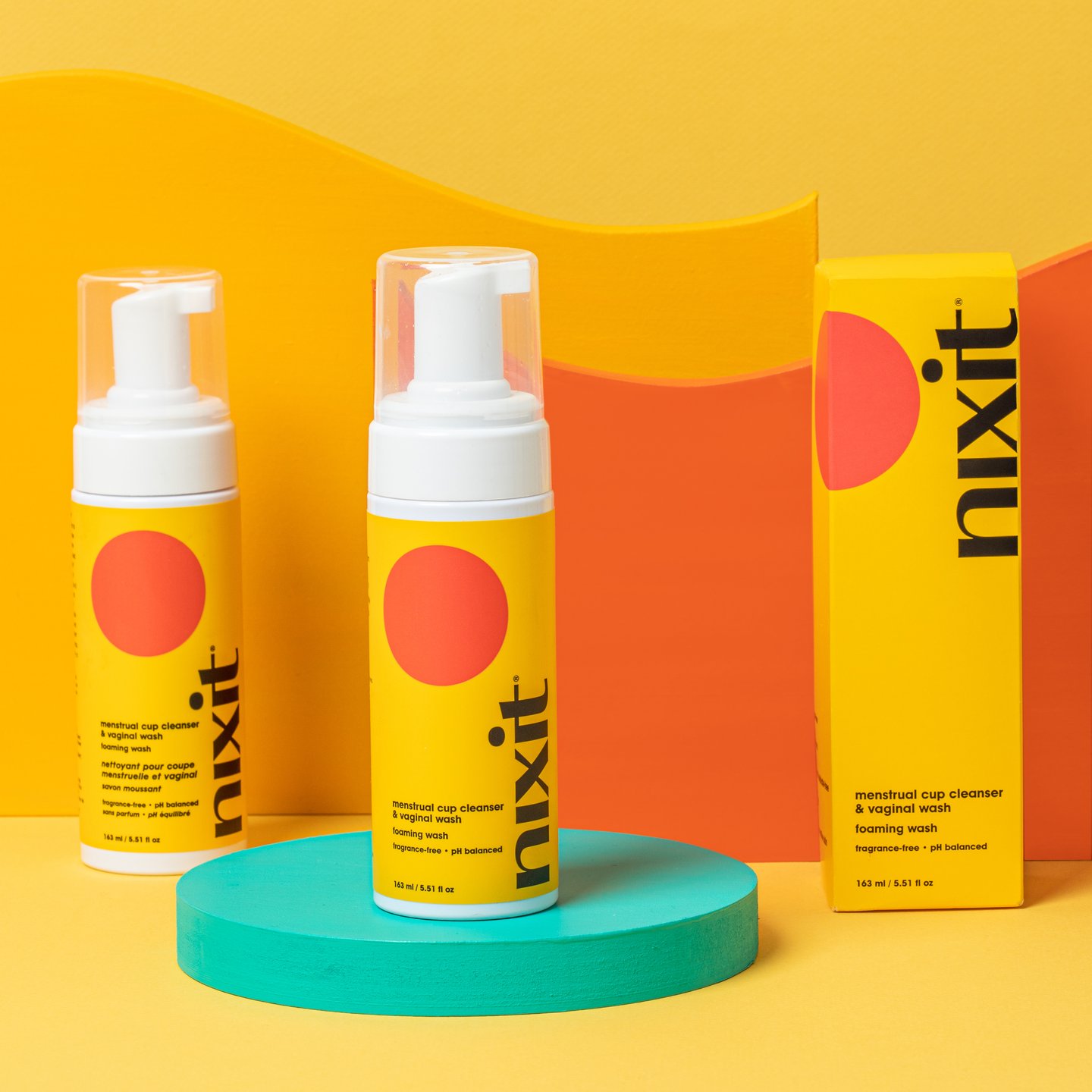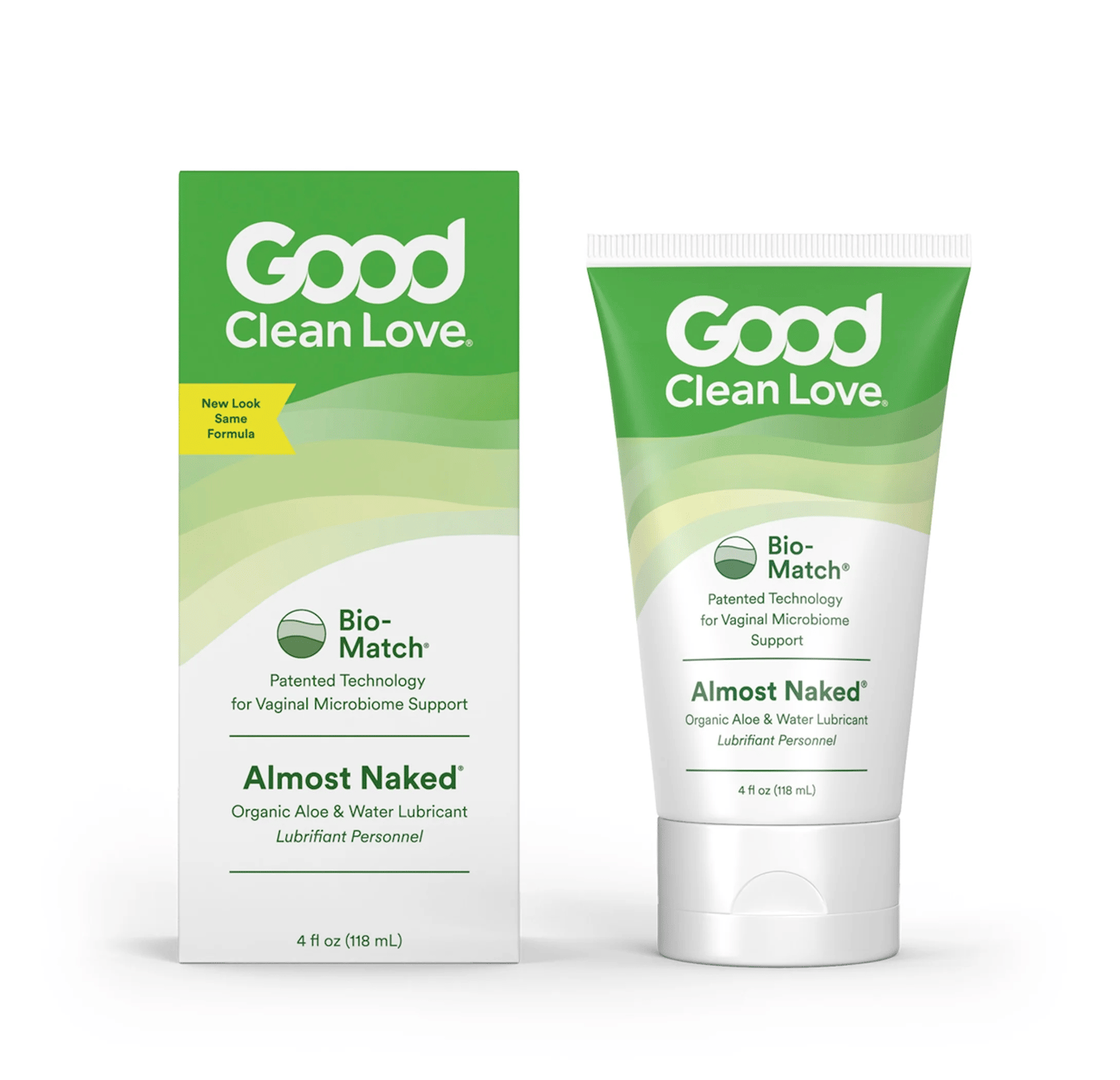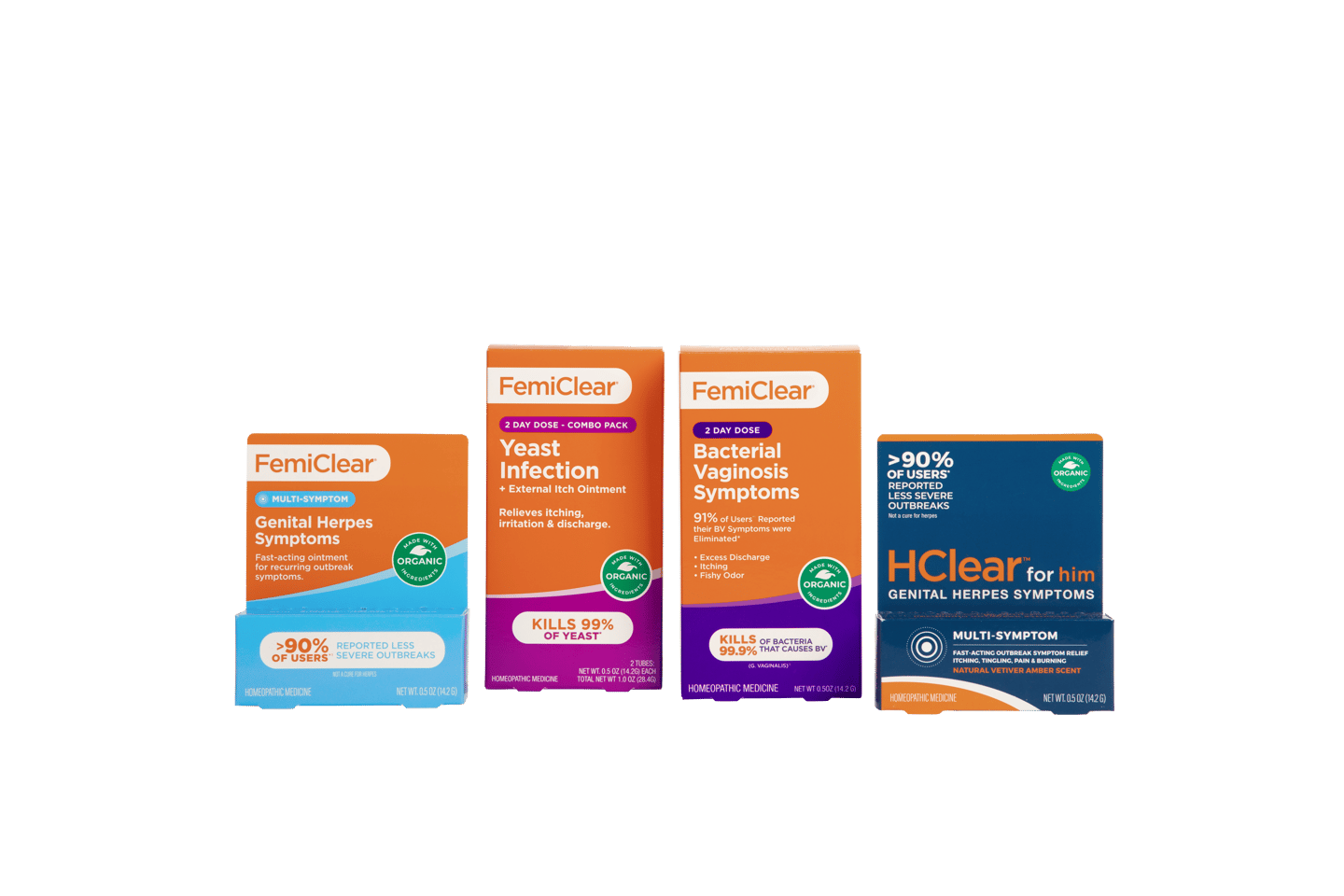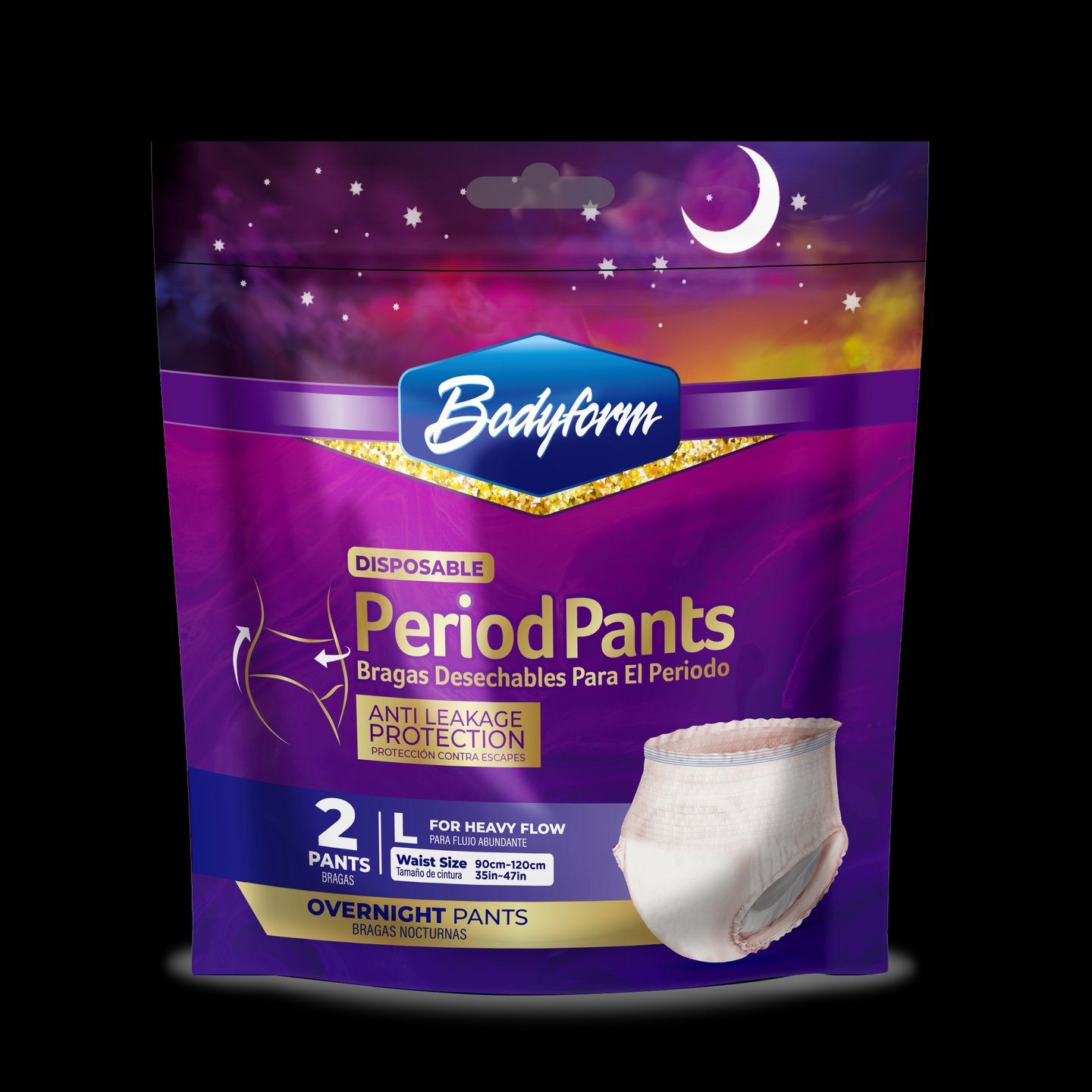Consumers embrace sustainable choices in period products, lubricants
Feminine hygiene products have come a long way. There are now multiple ways for women to take care of their period and their intimate health; and there are an array of companies offering other products—from menstrual cups to lubricants. There’s also a growing interest in responsibility in this category—to women’s health, to sustainability and to helping all women have what they need.
[Read more: Always Discreet, Taraji P. Henson tackle unaddressed perimenopause symptoms]
Caring for the environment
Rachael Newton launched Nixit (Toronto, Canada), aiming to reduce period waste. Nixit offers menstrual cups, a wash and wipes. She’d been horrified, she said, to learn that a woman uses 11,000 tampons in her lifetime, and these take 500 years to degrade in a landfill.
She started selling her products online and created a brand “that was bold and bright and empowering.” She was determined to have no plastic in the packaging, too.
So far, Nixit products are available in Whole Foods, Mother’s Market and grocery chains such as Harmons and Haggen. Newton, however, would like to bring the menstrual cup to the mainstream. “I would love to see them in stores like Target where you would hope people are ready, but I’m not sure they are.”
Nixit also works with several charities, including Twelve Donations, which provides free menstrual products to people who are BIPOC, LGBTQ+ or from marginalized groups.
[Read more: Beyond pregnancy care]
Addressing period poverty
Nikita Parmar launched Bodyform in October 2023 with a focus on premium period products at an accessible price. Packs of pads retail for under $2.
“One in three American women suffer from period poverty and it’s the number one reason girls miss school,” said Parmar, managing director/owner of Bodyform USA. “I wanted to do something impactful.”
When she established the woman-owned company, she planned to make donations but realized she could make a bigger impact offering high-performance pads at a low price.
Bodyform offers pads, panty liners and disposable period underwear. The company’s goal is to cover every stage of a woman’s period so for less than $5 she can buy everything she needs for the month.
Bodyform also has cardboard dispensers that hold 50 pads for use in institutions that provide these products for free. Parmar hopes to increase accessibility to free period products in bathrooms, starting with school systems—they’re already available in some school districts in New Jersey—and other institutions, including jails.
Organic and natural
Lubricants are 60% of business for Good Clean Love, and Almost Naked and BioNude are its best-sellers. It also has a Changing Phases line to help women at different parts of their lives including post-partum and menopause. Products include Relief Gel for vaginal dryness, itching and irritation. These can be used instead of prescription products.
OrganiCare has been focused on women’s health since 2019, and the Austin, Texas-based company sells products for women’s health under the FemiClear brand. The product treats bacterial vaginosis, followed by one for genital herpes, which can prevent outbreaks and lower the duration for outbreaks that happen.
“These conditions are desperately crying out for attention,” said CEO Caroline Goodner. “Bacterial vaginosis is poorly treated by everything, including the prescriptions. If you don’t have to use an antibiotic you shouldn’t and FemiClear offers a choice that’s even more efficacious.”
Both of these brands draw women looking for clean ingredients. “Better-for-you options are becoming more mainstream in sexual wellness and feminine hygiene,” said Mary Jo Rivzi, Good Clean Love’s vice president of sales.
“Women are increasingly mindful of what they put in and on their bodies, and being on the right side of this movement is important to us,” said Goodner. The brand’s solutions are free from synthetic chemicals, antibiotics and antifungals, “many of which are losing effectiveness due to growing resistance,” she added.
And while the lack of synthetic chemicals is an important message, the most top attribute of the products is their efficacy, Goodner said. “The number one message is efficacy and speed of relief.”
Stores versus online
Good Clean Love’s products are sold at more than 50,000 retailers such as Target, CVS and Kroger, as well as online. Business is split about 50/50 between digital and in-person sales.
Female hygiene and sexual health continues to be somewhat taboo, said Rivzi, but she sees change happening and sees more retailers interested in this area. “That talks to them wanting to provide what the shopper is looking for. They want to double down on sexual health and menopause, and even lean into displaying,” she said. “But none of this will happen overnight.”
Around 70% of OrganiCare’s sales are in brick and mortar stores, mostly drug, mass and grocery, with the remainder happening through e-commerce. “For our key products it’s a needs-based purchase so a lot of people get it in store if they want it,” said Goodner. However, she added, women are researching products a lot online beforehand, including on OrganiCare’s Amazon product page, and in the store they read labels and care about effectiveness.
OrganiCare’s products go into stores’ feminine hygiene and care section. Some retailers are looking to expand that space, which is typically only about 4 feet wide, said Janet Carter Smith, vice president of sales for OrganiCare. Some retailers put these products into the sexual wellness section, she said, which can be very challenging since they’re adjacent to condoms and lube when sex is the last thing on the minds of the women buying these products.
Through research, OrganiCare has discovered that displaying its products in a brand block leads to increased sales across the board, “because of the co-occurring and re-occurring nature of our products,” said Carter Smith. “Women are looking for solutions across the board and a brand block helps elevate the entire brand, including the preventative and maintenance products.”
A brand block also “gives the brand some credibility” said Goodner.
For Nixit, so far, most sales are online but wholesale orders are increasing. Newton thinks the price point of $42 for the cup is a detractor for some consumers, even though the costs become less after just a few months. “You save a lot of money and 99% of your period waste and the plastic that’s in a tampon or pad.”
Bodyform’s products are available at retail, mostly in supermarkets and mom and pop stores, though Parmar has her eye on the drug store industry. “There’s pushback from them because it competes with their private label,” she said.
At shelf, Bodyform doesn’t highlight its low price but lets consumers figure it out. But the packages draw attention because they “sparkle, they’re shiny and they’re bright,” she said. “The shelf appeal is there and for under $2 what do you have to lose. We let the price and the packaging speak for itself.”




